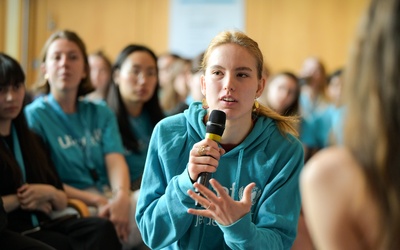Written by: Angi, U-Report Ambassador
For many young Canadians, life online isn’t a pastime, it’s the new normal, with all its promises and pressures. A U-Report poll conducted in September 2025, with 531 respondents across Canada, explored how youth perceive screen time, digital safety, and responsibility. The findings show both resilience and concern. Nearly half (46 %) of respondents spend four to six hours online each day, while one in three reports being online even longer.
When asked, “What do you think is the biggest downside of too much screen time for youth?” The top responses revealed how strongly mental well-being is tied to digital habits. One-third (32 %) said sleep issues were the biggest consequence, while 30 % pointed to feeling anxious or low. Others mentioned lost time for hobbies or friends (21 %) and physical effects such as eye strain or headaches (12 %). Only a small minority (2 %) felt there were no major downsides.
These findings highlight that while youth are digitally fluent, many are also deeply aware of the trade-offs between connection and well-being. One respondent reflected, “It’s easy to lose hours scrolling and forget about real life, setting limits helps me feel grounded again.”
Despite these challenges, 56 % of respondents said they feel confident navigating digital safety such as avoiding scams, reporting harm, and managing privacy settings, while another 36 % “know the basics.” This confidence, however, coexists with the recognition that online risks are constant. Young people described trying to stay grounded amid notifications, comparisons, and endless content loops. “Check your screen time, it can be very eye-opening,” one participant wrote. Another advised, “Set limits for yourself, and be willing to step away.”
At the same time, respondents expressed deep frustration with the lack of clear guidance or protection online. One in four (26 %) said stronger rules to protect youth online would make the digital world safer, while 24 % called for tools to track or limit screen time, and 21 % wanted more education about digital safety.
Responsibility, they said, must be shared. Twenty-seven percent placed that duty on social-media platforms, another 27 % on parents or caregivers, and 28 % on young people themselves. This balance suggests youth see online safety as a collective effort, not a single-sided responsibility. As one participant wrote, “We all have a role, adults should teach, platforms should protect, and we should look out for each other.”
Globally, digital exposure is rising faster than policy can keep up. The World Health Organization links excessive screen use among adolescents to sleep deprivation and heightened anxiety, while UNICEF’s Global Kids Online initiative emphasizes youth-led approaches to safer digital spaces. In Canada, Statistics Canada reports that 95 percent of youth aged 15–24 go online daily, yet fewer than half feel confident recognizing misinformation or harmful content.
For many respondents, the key to balance lies not in bans but in empowerment. When asked about banning personal cellphones in schools, just 33 % agreed, while more than half disagreed, emphasizing that digital literacy and trust are better tools than restriction. “Teach us how to use it right,” one youth wrote, “not just take it away.”
The data reveal a pragmatic generation that is aware of risks but unwilling to surrender the benefits of digital life. They want support, not surveillance; balance, not bans. Youth are calling on parents, educators, and tech companies to collaborate on smarter systems: built-in time-limit tools, transparent algorithms, age-appropriate design, and inclusive digital-literacy programs.
If these insights are acted upon, Canada could model what responsible digital citizenship looks like in an age of constant connection. The challenge is no longer whether young people can adapt, they already have, but whether systems and policies can adapt to support them.
In a digital era defined by both opportunity and overload, youth voices are pointing the way toward balance, empathy, and accountability. Listening to them is not optional, it’s essential.
This article has been authored by Angi, a UNICEF Canada U-Report Ambassador. To become a U-Reporter and share your insights on issues that matter to you, sign up here.






